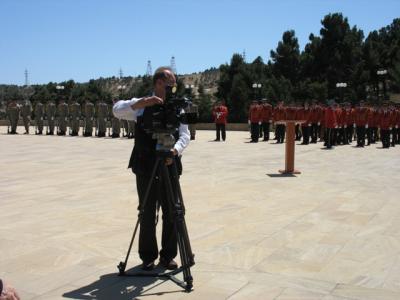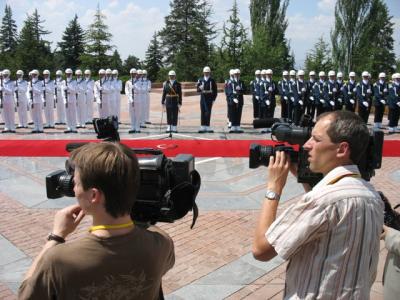Saturday, 15. September 2007
Iraqi blogs
Some interesting Iraqi blogs

http://neurotic-iraqi-wife.blogspot.com/
http://last-of-iraqis.blogspot.com/
http://nabilsblog.blogspot.com/
http://livesstrong.blogspot.com/
http://astarfrommosul.blogspot.com/
http://twentyfourstepstoliberty.blogspot.com/

http://neurotic-iraqi-wife.blogspot.com/
http://last-of-iraqis.blogspot.com/
http://nabilsblog.blogspot.com/
http://livesstrong.blogspot.com/
http://astarfrommosul.blogspot.com/
http://twentyfourstepstoliberty.blogspot.com/
ieva jusionyte, 12:06h
... link (0 Kommentare) ... comment
Thursday, 3. May 2007
The press in the world is far from being free...
ieva jusionyte, 12:03h
... link (0 Kommentare) ... comment
Thursday, 12. April 2007
Supporting Alan Johnson
BBC announced the international day of action for uniting efforts to free their reporter Alan Johnson, who disappeared in Gaza a month ago. Online petition, demanding his release, can be signed here:
http://news.bbc.co.uk/2/hi/talking_point/6518185.stm
http://news.bbc.co.uk/2/hi/talking_point/6518185.stm
ieva jusionyte, 19:07h
... link (0 Kommentare) ... comment
Wednesday, 7. March 2007
Journalism in Russia - dangerous as war
Today the funeral of Ivan Safronov, a Russian journalist who worked for "Kommersant", is taking place in Moscow. He died on Friday, having fallen from the fifth-floor of an apartment block where he used to live. Before his death he was investigating reports of an alleged Russian sale of sophisticated missiles to Iran and fighter jets to Syria, using Belarus as a transit country. The International News Safety Institute (INSI) concluded that Russia is the second most deadliest place for journalists, after Iraq. In the last 10 years, 88 journalists were killed in Russia, the most common cause of these deaths being contract murders. (BBC world news)
ieva jusionyte, 09:23h
... link (0 Kommentare) ... comment
Thursday, 1. February 2007
Journalists in danger
Today “Reporters Without Borders”, an international NGO advocating the freedom of the press, issued its 2007 annual press freedom survey. The survey analyses 98 countries and includes the main violations of journalists’ rights in 2006 and regional aspects of media freedom.

In January 2007 alone six journalists and four media assistants have been killed. And at the moment more than 100 journalists are in prison for "crimes" such as revealing inconvenient information, calling for greater personal freedoms and refusing to be censored or follow an imposed line with Eritrea, China and Cuba as the countries leading in these “initiatives” (actually you can sign the petition for the release of Eritrean journalists: http://www.rsf.org/article.php3?id_article=3789).
Although it is not surprising that the worst violations are noticed in such states as North Korea, Eritrea, Cuba, Belarus, Iran, Turkmenistan, much more shocking are the results about democracies, for example, Argentina, Brazil, India and Turkey, where, following the murder of Turkish-Armenian journalist Hrant Dink on January 19, more than a dozen writers have been assigned bodyguards. Even the U.S., Australia and France are labeled as having only “satisfactory situation”.

According to the report:
Media workers in the Middle East were once again the victims of the region’s chronic instability. 65 journalists and media assistants were killed in Iraq and kidnappings were more frequent there and in the Palestinian Territories.
In Latin America, the murder of nearly a dozen journalists in Mexico with virtual impunity, the continued imprisonment of more than a score in Cuba and the deteriorating situation in Bolivia (nevertheless the best-ranked country of the South in the “Reporters Without Borders” annual press freedom index) are all signals to the international community to be very vigilant.
Press freedom violations in Asia peaked with 16 media workers killed, at least 328 arrested, 517 physically attacked or threatened and 478 media outlets censored in 2006. Censorship is very widespread and complete freedom to speak and write is rare in Asia.
Many African governments, especially those in the Horn of Africa, distrust media workers. The killers of journalists are also not being punished and are still being protected by governments and all-powerful politicians in Gambia and Burkina Faso.
Dictatorships also seem to be tightening their grip on the Internet and at least 60 people are in prison for posting criticism of the government online. China, the leading offender, is being copied by Vietnam, Syria, Tunisia, Libya and Iran and more and more bloggers and cyber-dissidents are in jail.
The full 156-page report (by regions and countries and with maps) can be found here:
http://www.rsf.org/IMG/pdf/rapport_en_md-2.pdf

In January 2007 alone six journalists and four media assistants have been killed. And at the moment more than 100 journalists are in prison for "crimes" such as revealing inconvenient information, calling for greater personal freedoms and refusing to be censored or follow an imposed line with Eritrea, China and Cuba as the countries leading in these “initiatives” (actually you can sign the petition for the release of Eritrean journalists: http://www.rsf.org/article.php3?id_article=3789).
Although it is not surprising that the worst violations are noticed in such states as North Korea, Eritrea, Cuba, Belarus, Iran, Turkmenistan, much more shocking are the results about democracies, for example, Argentina, Brazil, India and Turkey, where, following the murder of Turkish-Armenian journalist Hrant Dink on January 19, more than a dozen writers have been assigned bodyguards. Even the U.S., Australia and France are labeled as having only “satisfactory situation”.

According to the report:
Media workers in the Middle East were once again the victims of the region’s chronic instability. 65 journalists and media assistants were killed in Iraq and kidnappings were more frequent there and in the Palestinian Territories.
In Latin America, the murder of nearly a dozen journalists in Mexico with virtual impunity, the continued imprisonment of more than a score in Cuba and the deteriorating situation in Bolivia (nevertheless the best-ranked country of the South in the “Reporters Without Borders” annual press freedom index) are all signals to the international community to be very vigilant.
Press freedom violations in Asia peaked with 16 media workers killed, at least 328 arrested, 517 physically attacked or threatened and 478 media outlets censored in 2006. Censorship is very widespread and complete freedom to speak and write is rare in Asia.
Many African governments, especially those in the Horn of Africa, distrust media workers. The killers of journalists are also not being punished and are still being protected by governments and all-powerful politicians in Gambia and Burkina Faso.
Dictatorships also seem to be tightening their grip on the Internet and at least 60 people are in prison for posting criticism of the government online. China, the leading offender, is being copied by Vietnam, Syria, Tunisia, Libya and Iran and more and more bloggers and cyber-dissidents are in jail.
The full 156-page report (by regions and countries and with maps) can be found here:
http://www.rsf.org/IMG/pdf/rapport_en_md-2.pdf
ieva jusionyte, 16:54h
... link (2 Kommentare) ... comment